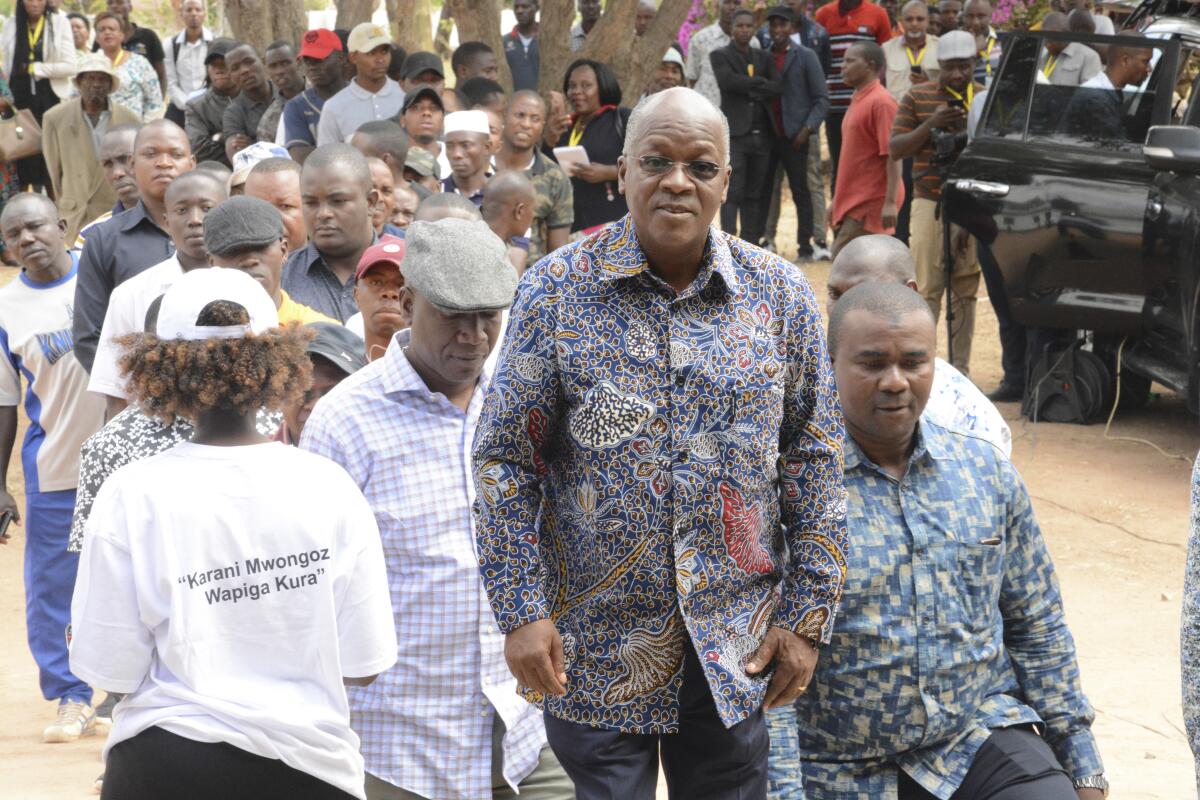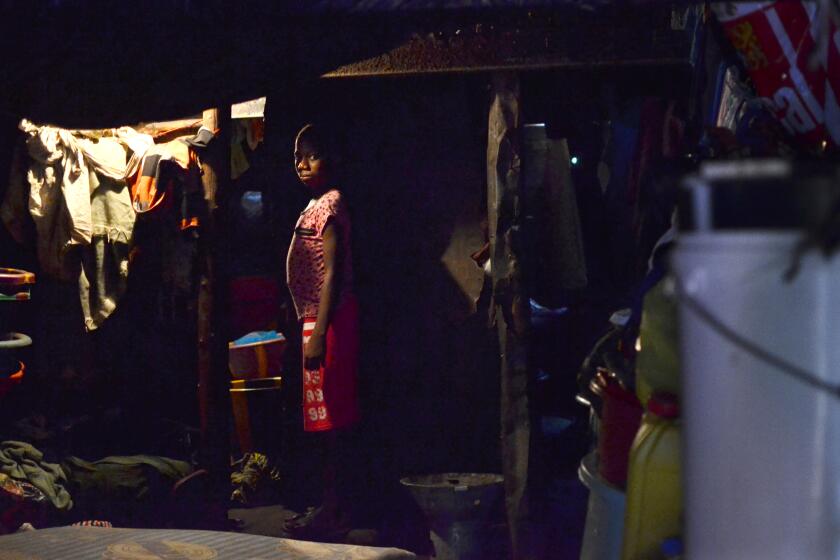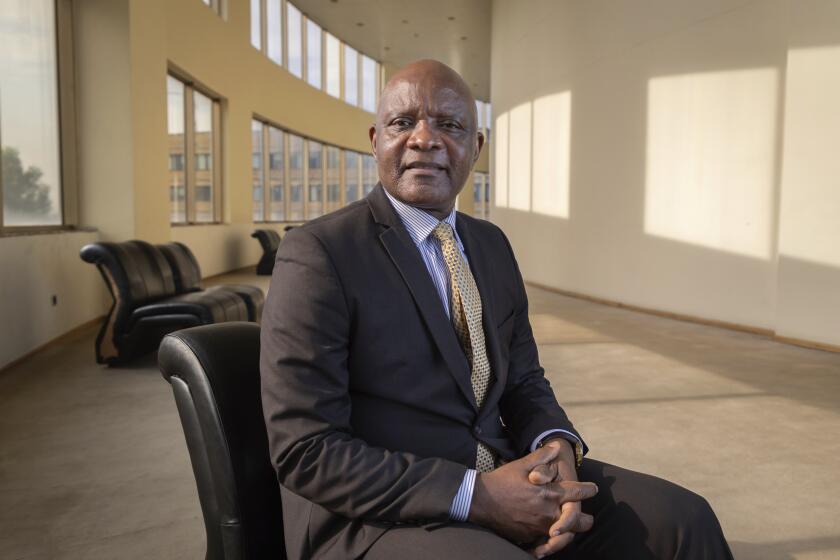Tanzania votes for president amid fears of election violence, fraud

- Share via
DODOMA, Tanzania — Long lines of voters in Tanzania went to the polls Wednesday for a presidential election that the opposition warned is already compromised by manipulation, deadly violence and a massive internet slowdown in a country once praised as a beacon of peace in Africa.
Results declared by the electoral commission cannot be challenged in court, bringing urgency to efforts to monitor the vote, even as opposition figures said observers were turned away from scores of polling stations. Some major independent observers such as the European Union were not invited or were blocked.
Leading opposition candidate Tundu Lissu alleged “widespread irregularities,” including ballot-box stuffing. He tweeted that “if this continues, mass democratic action will be the only option to protect the integrity of the election.” The survivor of an assassination attempt in 2017, Lissu returned this year to challenge populist President John Magufuli, who seeks a second five-year term.
Others reported intimidation. “My life is in danger,” Freeman Mbowe, the chairman of opposition party CHADEMA, tweeted Wednesday, alleging that “heavily armed gangsters” protected by police had raided his hotel and seized two of his security guards.
Diplomats, the United Nations and others say the government under Magufuli has severely stifled media, civil society and opposition voices. He also has been accused of downplaying the COVID-19 pandemic, declaring it defeated through prayer.
“We must continue to maintain peace,” Magufuli said after voting, showing off his ink-stained finger and urging people to go to the polls. Nicknamed “the Bulldozer,” Magufuli has made his name in part by targeting corruption and strengthening one of Africa’s fastest-growing economies.
A reporter who covered an Ebola outbreak in West Africa discovers troubling parallels in the U.S. over the coronavirus, including conspiracy theories and denial.
The opposition faces a major challenge in trying to unseat Magufuli’s ruling Chama Cha Mapinduzi party, which has been in power since Tanzanian independence in 1961. There are 15 presidential candidates; whoever receives the most votes wins, with no second round. More than 29 million people have registered to vote.
Opposition challenger Lissu has urged people to go into the streets to protest if election results are announced Thursday without votes having been counted properly. Results are expected within three days.
Internet services slowed ahead of the vote. Few foreign news organizations received approval to report on the ground.
“Everyone has the duty to protect the legitimacy of this general election,” the Citizen newspaper said.
As the coronavirus moved to Africa, health experts warned of impending disaster, but so far those predictions have not panned out.
Deadly violence erupted ahead of the vote as Tanzania’s other top opposition party, ACT Wazalendo, accused police of shooting dead nine people in the semi-autonomous region of Zanzibar. CHADEMA accused ruling party supporters of shooting dead two people at a rally Tuesday in a town in the northeast. The ruling party did not respond to requests for comment.
One voter in Zanzibar, Yahya Khamis, said it was doubtful the vote would be free or fair. “To our surprise we have been given only four ballot papers while we’re required to vote for five candidates,” Khamis said.
Tanzania Elections Watch, a regional initiative by prominent personalities, has noted hate speech and intimidation of candidates and said the election would be flawed if held under current conditions.
In a statement Wednesday, it warned that actions by security forces had created a “climate of fear,” and it said it was “alarmed by the clampdown on communication channels, including suspension of bulk SMS services, reported blocking of social media sites and slowing down of internet communication.”
More to Read
Sign up for Essential California
The most important California stories and recommendations in your inbox every morning.
You may occasionally receive promotional content from the Los Angeles Times.












